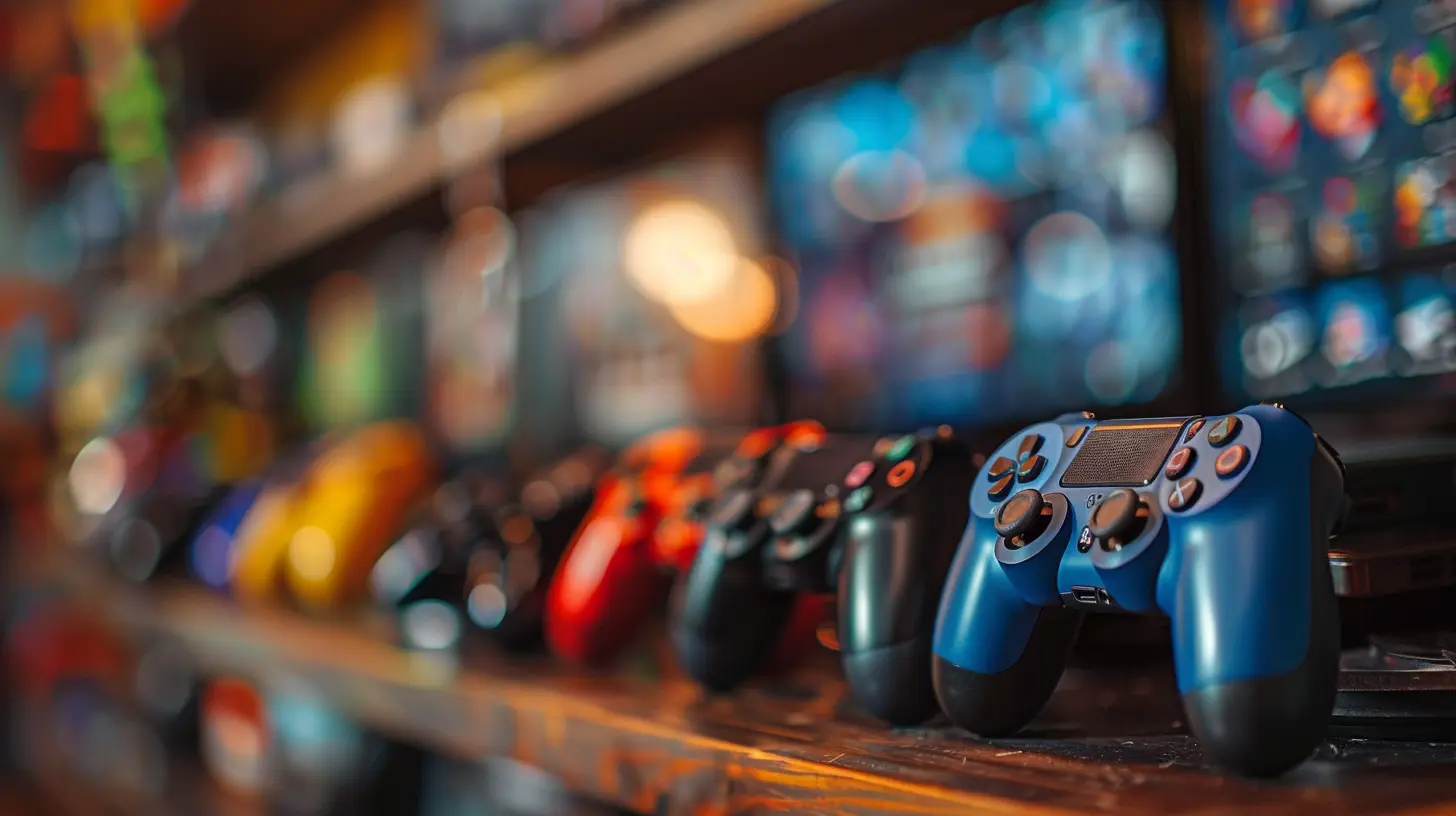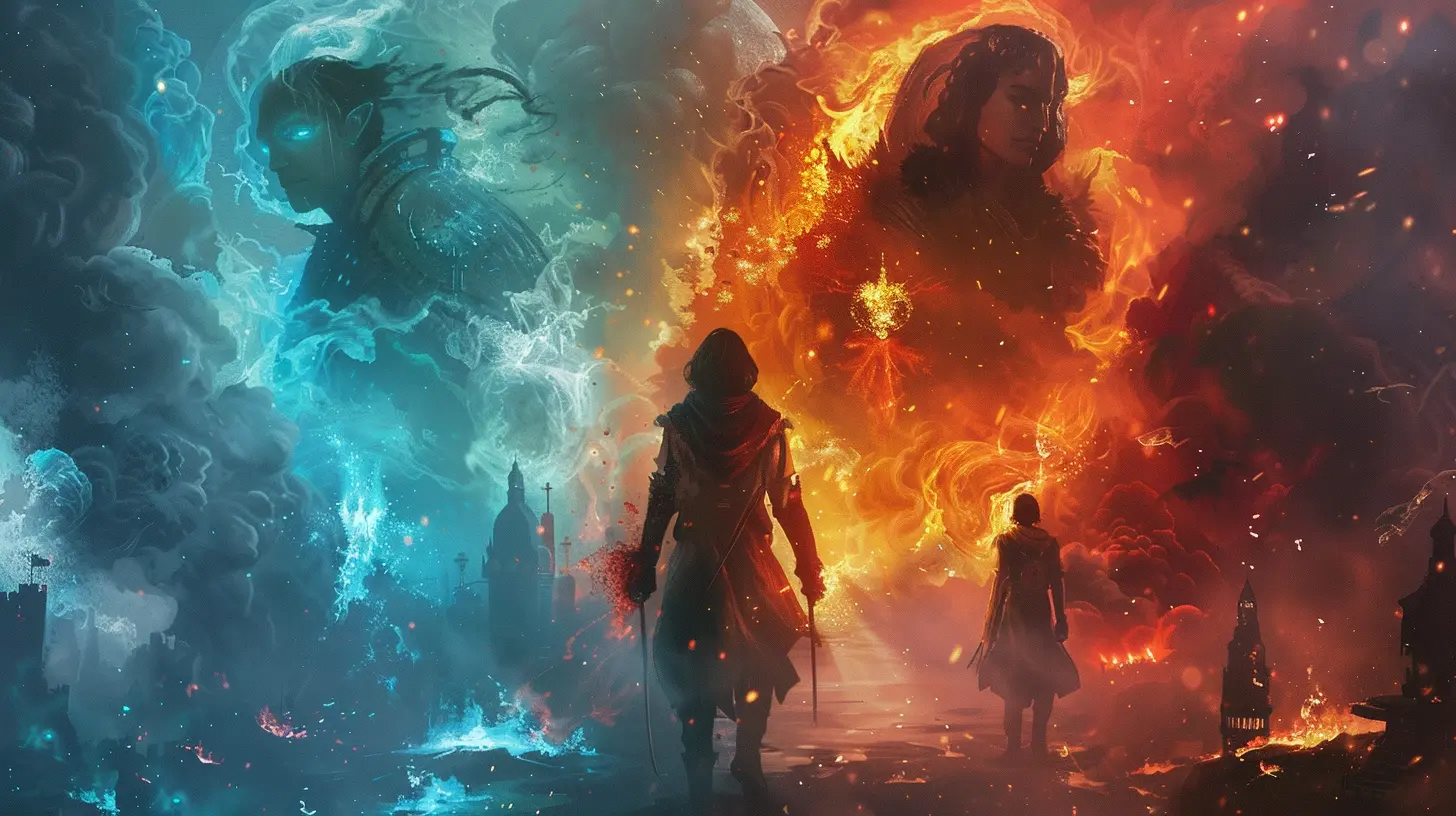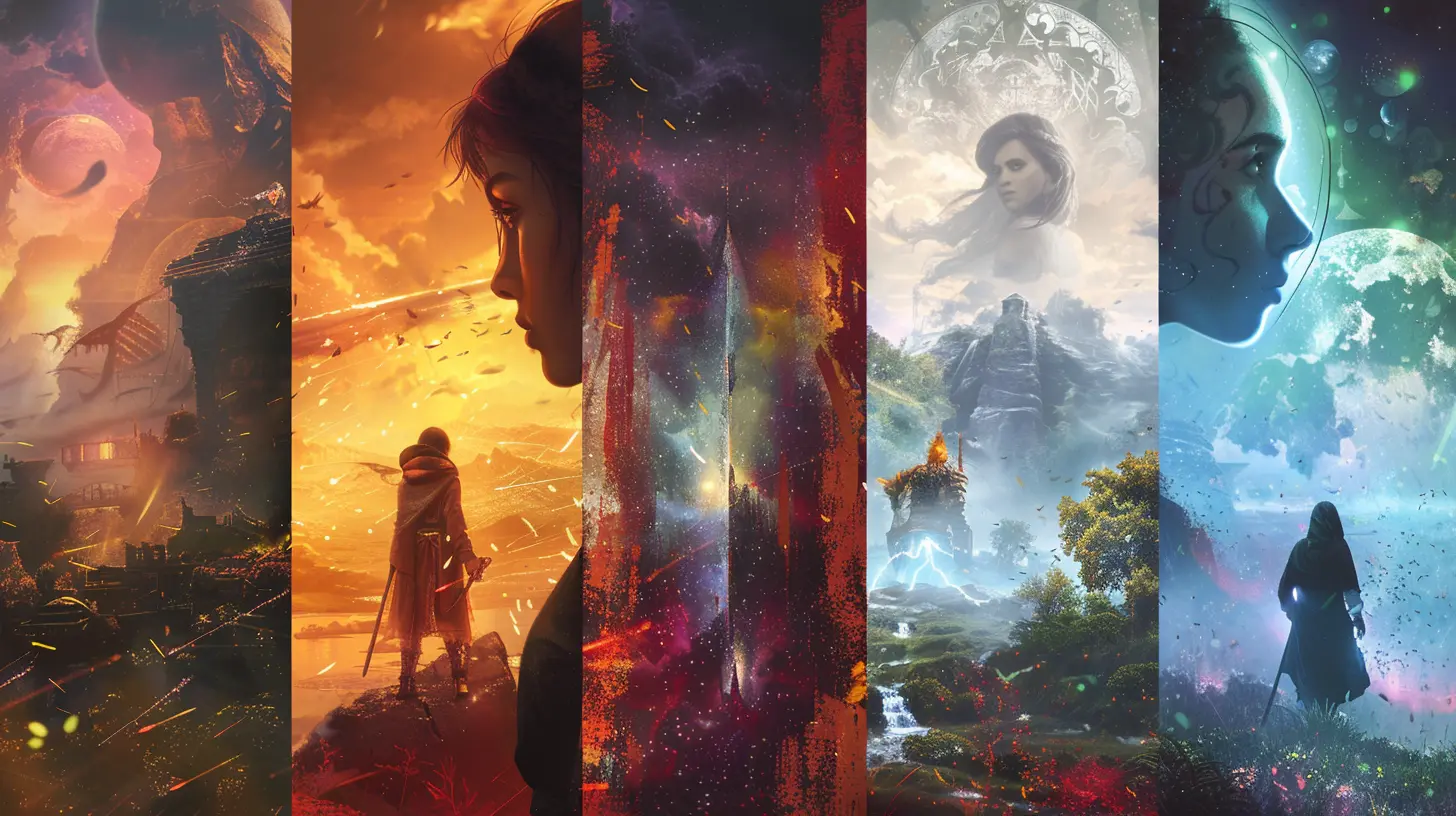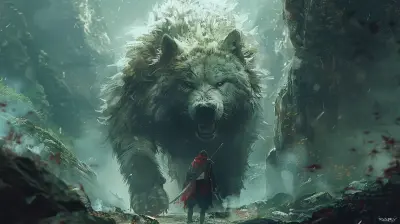Common Progression Pitfalls in Modern Games
7 August 2025
Ever picked up a game, got hyped for the grind, only to feel completely burned out halfway through? You're not alone. Whether it's a sprawling RPG or a competitive online shooter, modern games are packed with progression systems—leveling, gear upgrades, unlock trees, battle passes—you name it. But while these systems are supposed to hook us in and keep us playing, they often end up doing the exact opposite.
Progression should feel rewarding, not exhausting. So, what’s going wrong?
Let’s dig deep into the most common progression pitfalls in modern games and why so many titles, even the big-budget ones, stumble hard when it comes to keeping players engaged without burning them out.
What Is Progression in Games Anyway?
Before we start pointing fingers, let’s clear up what we mean by “progression.”In the simplest terms, progression in games is the system that tracks your advancement. It could be:
- Gaining experience and leveling up
- Unlocking new abilities or equipment
- Earning currency or achievements
- Climbing ranks or leaderboards
It’s what gives you a sense of growth. Think of it like leveling up in real life. You work hard, develop new skills, and unlock new opportunities. But if it feels like you’re stuck in a dead-end job with no promotions in sight? Yeah, that's exactly how bad progression systems feel in games.
1. The Grind Wall: When Progression Hits a Brick Wall
Let’s be honest—grinding in moderation can be fun. It scratches that itch of working toward a goal. But many games crank the grind up to eleven.Ever hit that point where a quest needs 100 of some rare drop, and you only get one per hour? That’s not fun—that’s a job.
Take many live-service games. They often start strong, showering you with rewards during the first ten hours. But then? Suddenly, progression slows to a crawl. Want that shiny armor set? Hope you’re ready to replay the same mission 50 times.
Why games do this:
- Player Retention: Devs want you to keep logging in.- Monetization: Make the grind tedious enough, and some players might shell out real money to skip it.
Why it’s a problem:
- Players burn out.- The fun dies when the reward-to-effort ratio feels unfair.
- It starts feeling like a chore, not a game.

2. Overcomplicated Systems: When Progression Turns into a Puzzle
Another issue? Overly complex systems that make you feel like you need a PhD in Game Theory just to upgrade your sword.Modern RPGs and MMOs especially fall into this trap. Instead of a clean, intuitive system, you get:
- Five different upgrade currencies
- Skill trees with unclear benefits
- Crafting menus buried behind other menus
- RNG-based upgrades that might even backfire
You know the type—where you equip a legendary item, only to find out it doesn’t synergize with your build, but respecing costs half your in-game fortune.
Why this happens:
- Devs want to add depth.- Complex systems give the illusion of value and longevity.
Why it's a misfire:
- Too much complexity turns off casual players.- It alienates people who don’t have time to watch 30-minute YouTube tutorials.
Sometimes, less is more. A simple, clear upgrade path can be just as satisfying—if not more—than throwing 20 mechanics against the wall just to see what sticks.
3. FOMO Progression: Battle Passes and Time-Limited Rewards
Ah, the dreaded Fear of Missing Out (FOMO). Battle passes and seasonal rewards have become the norm in multiplayer games like Fortnite, Apex Legends, and Call of Duty.You buy the pass (or maybe it’s free but grindy), and you've got 60 days to unlock all the cool cosmetics. Sounds fair, right? Except real life gets in the way.
Maybe you go on vacation. Maybe you just don’t feel like playing every day. Suddenly, you’re scrambling in the final week, trying to binge your way through dozens of levels before the clock runs out.
Why devs love this model:
- It keeps players logging in regularly.- It creates a sense of urgency (and often, pressure).
Why players hate it:
- It turns playing into a schedule.- It punishes casual players.
- It creates anxiety, not enjoyment.
FOMO-based design can be effective—but it walks a fine line. Rewarding consistent play is great. Punishing players for having a life? Not so much.
4. Unbalanced Rewards: When Effort Doesn’t Match the Payoff
Have you ever spent hours completing a difficult dungeon or challenge, only to get… a slightly shinier version of an item you already had?That’s one of the biggest immersion-breakers right there.
A good progression system should make you feel like your time and effort are worth it. The best games nail this. Every level-up feels like a step forward. Every loot drop gives you a little dopamine hit.
But bad reward structures kill that vibe quick.
Common offenders:
- Loot boxes that give duplicates- RNG-based drops where "better" gear never seems to appear
- Uninspiring upgrades (e.g., +0.5% damage to a weapon you never use)
The fix?
Make rewards meaningful. Even cosmetic rewards can be satisfying if they reflect a specific achievement. Give players a clear sense of “I worked for this, and it matters.”5. Artificial Progression Gating
Some games introduce arbitrary walls that prevent you from advancing unless you grind past them. These are often tied to some bizarre metric like “Power Level 550 required” or “Unlock 40 side quests before proceeding.”It’s frustrating because it breaks the pacing. You were immersed in the story or gameplay loop—then, bam! A grind wall you didn’t ask for.
Why it’s frustrating:
- It interrupts the natural flow of the game.- It forces players to do content they might not enjoy.
- It feels manipulative rather than meaningful.
In an ideal setup, barriers to progression should feel like part of the story or world. Not like the game is holding your progress hostage.
6. Progression That Punishes Experimentation
You finally have enough upgrade materials to boost your favorite weapon… but then you find another one that might be better. Only problem? You can’t undo the upgrades. And resources to enhance the second item are scarce.This punishes creativity and experimentation. And that’s not fun.
How games mess this up:
- No respec options- Limited currencies that force players to commit early
- Gear leveling paths that are irreversible
Games should encourage players to try new builds, test strategies, and make discoveries. But if the system punishes you for exploring, most people will just stick to “the meta,” even if it isn’t fun for them.
Let players play the way they want.
7. No Sense of Identity or Milestones
Remember the buzz of reaching Level 50 in a classic RPG or unlocking your first mount in an MMO? Those milestones felt like actual achievements.Today, many games lack that feeling of identity-driven progression. You hit max level, but your character doesn’t feel much different than they did at level 10.
What’s missing?
- Visual changes or transformation that show growth- Unique titles, gear, or perks that tell your story
- Meaningful decisions that shape your character or path
Without these, progression becomes just numbers going up. And that’s... pretty hollow.
So, What Makes Progression Feel Good?
Let’s flip the script. What do games with great progression systems do right?- Clear Goals: You know what you’re working toward.
- Satisfying Feedback: Great sound design, visuals, or animations when you level up or unlock something.
- Freedom: Ability to explore different styles or builds without punishment.
- Pacing: A smooth incline—harder over time but never unfair.
- Meaningful Rewards: Loot that changes how you play, or cosmetics that show your journey.
Games like The Witcher 3, Diablo IV, and Elden Ring nail progression because every step forward feels earned, clear, and worth it. You're not grinding because you're forced to—you’re grinding because you want to.
Final Thoughts: Don't Let Progression Become the Enemy
Progression is the heart and soul of most modern games. It’s what keeps us coming back. But when it becomes too grindy, too complex, or just plain hollow, it backfires—fast.Developers, take note: We gamers love a challenge. We love goals. But we also love fun. And when your progression systems start feeling more like a second job than a power fantasy, we start looking for the next best thing.
The fix isn’t necessarily to simplify everything. It’s to respect the player’s time, reward creativity, and make every step forward feel like an adventure instead of an obligation.
So next time you boot up that shiny new title and find yourself knee-deep in nested menus and slow XP ticks… ask yourself: Is this game respecting your time, or just trying to string you along?
Because you deserve progression that’s satisfying—not soul-sucking.
all images in this post were generated using AI tools
Category:
Game ProgressionAuthor:

Avril McDowney
Discussion
rate this article
2 comments
Nixie Barrett
Ah, the classic 'I swear I was just grinding for fun!' pitfall! It's like trying to cook dinner and ending up with a five-course feast... for your digital character. Let’s learn from our blunders and level up our gaming wisdom!
January 26, 2026 at 4:32 AM

Avril McDowney
Haha, exactly! It's all too easy to get carried away. Thanks for the insightful comment! Let's level up together!
Madison Peterson
Modern games often stumble in balancing player progression, leading to frustration. By addressing pacing, rewards, and meaningful choices, developers can enhance engagement and create a more satisfying journey for players.
August 25, 2025 at 4:47 AM

Avril McDowney
Thank you for your insights! Balancing progression is indeed crucial for player satisfaction, and addressing these aspects can significantly improve the gaming experience.


